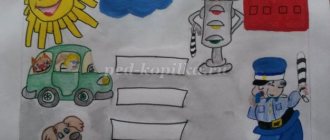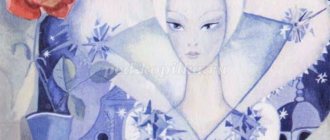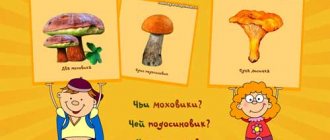International Mother Language Day in the senior group
Entertainment scenario “International Language Day” for children of senior and preparatory groups
Description: The entertainment is aimed at introducing children to the “International Language Day” holiday. This scenario will be useful for educators and music directors in preparing for GCD and entertainment. Goal: To introduce children to the “International Mother Language Day”. Develop curiosity, desire for new knowledge and native language. Objectives: - consolidate children’s knowledge about the culture and language of the Russian, Khakass and English people.
To promote increased interest in the native language, the sound of words in the languages of different nationalities. — to instill in children pride in their native language, for their people and a tolerant attitude towards representatives of other nationalities, their language and culture. Progress of the entertainment:
Children enter the hall to the music and sit on chairs.
Host: Hello guys, and dear guests. When we use the words “friends” in our speech, our speech becomes accurate, bright, expressive, and interesting. What helps us communicate? (language). Today is February 21st every year, the country celebrates International Mother Language Day. There are many languages on the globe. Even when you were just born and were very small, your mothers sang lullabies to you in your native language. How do you understand what your native language is? (which we speak). What language do we speak? (in Russian) Host: What republic do we live in? What nationalities live in our republic? Each nation has a unique culture, history, traditions and, of course, language. Today at our holiday we will learn about representatives of different nations. To the music, a teacher in Russian costume enters the hall: Hello! Our Russian language is rich and beautiful! There are so many words in it, this is the native language of Pushkin, Tolstoy, Gogol, whose fairy tales we often read. Love your Motherland, your language, your people! Children: On the day of your native language, I wish you to preserve it. So that the speech is easy, Swear words without repeating, Speak well - A kind word is pleasant! This is why the language came, so that we can communicate clearly in it. Host: Name proverbs and sayings that talk about language. Children: - The tongue is sharper than a razor. - Language will take you to Kyiv. - A tongue without bones, it babbles whatever it wants. - My tongue is my enemy. - Don’t rush with your language, hurry with your actions. - Listen more and talk less. Guest from Russia: Now let's play. Russian folk game "Zarya" Children stand in a circle, hold their hands behind their backs, and one of the players - Zarya - walks behind with a ribbon and says: Zarya - lightning, Red maiden, Walked across the field, Dropped the keys, Golden keys, Blue ribbons, Rings entwined - She went for water. With the last words, the driver carefully places the ribbon on the shoulder of one of the players, who, noticing this, quickly takes the ribbon, and they both run in different directions in a circle. The one who is left without a place becomes Dawn. The game repeats itself. Host: Guys, the Russian people have a lot of not only games, but also songs. Now we will perform the round dance “Like on thin ice”
Song - round dance “Like a thin summer” - preparatory group (piano) Presenter: Of course, many people of different nationalities live in Khakassia (Russians, Khakassians, Ukrainians and Belarusians) A guest from Khakassia (teacher) enters the hall accompanied by music . words in the Khakass language.
Guys, let’s play with you
the Khakass folk game “Bear and Stump” - senior group:
The driver and the “bear” are selected, the rest are “stumps”. They sit in a circle facing the center of the circle, leaving passages between them. The driver moves between the stumps, lightly touching the tops of the heads while singing the song: “Chubs, chabs, bear, stump.” A bear sneaks up next to catch and stain him. If he catches them, they will both become stumps and sit down, and others will be chosen instead. And everything starts all over again. Guest from Russia: Every nation has its own traditions, culture and language. All this distinguishes each nation from each other. This is what makes people proud of belonging to a particular nation. And the language conveys all the features of the people’s way of life. Therefore, many of them, even small ones, try with all their might to preserve their language, paying tribute to their ancestors and their uniqueness. Presenter: In our kindergarten we educate children of different nationalities. We hope that everyone’s native language is dear and interesting. The same word sounds different in different languages. Guest from Russia: In Russia, Russian is the language of interethnic communication. But there is also a language of international communication - English. In any country in the world they study and know English, wherever you go on a trip, English is your main assistant. A guest from England enters to the music and greets the children: Hello! Offers to play an English game with the children: “Let’s do everything as I do” (voiced, phonogram plus) Performed in a circle, standing still, with the end of each phrase - the leader’s movements are repeated.
1. Do you all like to play?
(yes) Do you all like to play? (yes) Come on, all together, all at once. Well, shall we play now? - 2 rub. 2. Come on, clap like I do - clap, clap. Come on, clap like me. Come on, everyone together, everyone at once. Only here they clap. - 2 r 3. Come on, stomp like me. Let's all stomp like me. Come on, all together, all at once. Only here they stomp like that. 4. Come on, say hello! Well, say hello! Come on, all together, all at once. They greet you like that only here - 2 r 5. Come on, say: Ha-ha-ha, Come on, say: Ha-ha-ha, Come on, everyone laughs like that, all at once, only here. 6. Let's all shout: Hurray-ah-ah! Let's all shout: Hurray! Come on, all together, all at once, hurray! Only here we have fun! Host: Indeed, all languages are beautiful, every language is beautiful. Don’t forget, love your native language, take care of it, be proud of it! Presenter: Live together in peace and harmony with children of different nationalities. I wish you happiness, health, kindness. And now we invite you to sing a song about friendship “I want” (children from the vocal circle)
Song “I want”, arrangement Yuri Elash 1. So that you and I can be friends I want, and I want. I want everyone to be happy, and I want to. To make the flowers smile I want, and I want. I want the stars to light up, and I want them. 2. I want to become my cherished dream, and I want to. And I want to be fulfilled in spring, and I want. So that mom doesn't be sad. I want it, and I want it. And she always loved me. I want, and I want. Host: This ends our holiday. Thank you all for your attention. Photo for memory. Costumes: Russian, Khakass, English; ribbon, horse on a stick, costumes for Vanya and girlfriends; bear mask; It is possible for children R.N. costumes. Repertoire: Round dance “Like on thin ice”, song “I want” Games “Dawn”, Khakass folk game – “The Bear and the Stump” English game – “Let’s do everything as I do”
We recommend watching:
Winter fun for the senior group. Winter fun. Scenario: Winter fun outside for children. Scenario Sports festival for children of senior preschool age. Winter fun Winter fun in the senior group of kindergarten
Similar articles:
The fairy tale “Cat-Voevoda in a new way.” Scenario for children 5-6 years old
Winter fair of games and fun for older preschoolers
Winter birthday day in kindergarten. Senior group
Winter theatrical entertainment in the senior group
Winter games for older children in kindergarten
Pedagogical project "Year of the Russian language at preschool educational institutions"
Yalanskaya Natalia Alexandrovna
Teacher of the preschool educational institution "NURSERY - GARDEN No. 4"
YASINOVATAYA CITY"
PEDAGOGICAL PROJECT “YEAR OF THE RUSSIAN LANGUAGE IN MPreschool Educational Institution”
Article
The huge role of the Russian language in the modern world is determined by its cultural value, power and greatness, the great significance that the Russian people, the creator and speaker of this language, had and still has in the history of mankind.
According to the Decree of the Head of the Republic Denis Pushilin, 2022 in the Donetsk People's Republic has been declared the Year of the Russian Language.
Our institution also took part in events dedicated to this event, because the development of speech is closely connected with the formation of consciousness, intelligence, knowledge of the surrounding world, the development of the individual as a whole, his aesthetic and moral ideals.
In order to systematize the events and attract a larger number of participants to them, the creative group of the MDOU developed the pedagogical project “Year of the Russian Language in Kindergarten”
PROJECT OBJECTIVES:
— development of a system and search for effective methods and techniques to improve the pedagogical skills of educators in matters of speech development of preschool children;
- formation of speech culture, intelligence, patriotic and international feelings of pupils, introducing them to the treasury of Russian speech, Russian folklore, Russian literature;
— involvement of participants in the pedagogical process in public events held within the framework of the Year of the Russian Language in the Republic, city, preschool institution.
To realize the first goal of the project, a lot of work was done with teachers.
The pedagogical polylogue “The Origins of Russian Writing and Culture” was dedicated to the history of Russian writing. The teachers actively discussed the question: where does Russian writing come from and where did it come from? They learned the history of the celebration of the Day of Slavic Culture and Literature, were surprised by the fortitude of the brothers Cyril and Methodius in the struggle for the formation of the Slavic language, and spoke about the peculiarities of the speech style of outstanding children's writers.
The model of speech for our students is the teacher’s speech, therefore, as part of the project, training “Culture of Teacher Speech” was conducted. During the training, criteria for the correctness of the teacher’s speech were developed, and while performing creative tasks, teachers thought through and conducted interactive games “Word Carousel”, “Researchers - Etymologists”, “Synonym - Antonym”, “Rhymes”, “Such Necessary Words”.
Photo 1. Pedagogical polylogues “The Origins of Russian Literature and Culture”
In the preschool institution, innovative technologies for the speech development of preschoolers are constantly being studied and implemented. The work experiences of Natalya Aleksandrovna Yalanskaya “Plot-based role-playing and director’s games in the social and communicative development of children” (2018), Elena Anatolyevna Nekoz “An integrated approach to the development of speech of a young child by enhancing joint play activities with an adult” (2018) are summarized. In the year of the Russian language, the treasury of teachers’ experience was replenished with such methodological developments as the work experience of Inna Gennadievna Sopina “Use of innovative techniques in the cognitive and speech development of children”; a creative group of teachers from the Moscow Preschool Educational Institution developed a long-term plan for introducing children to the origins of Russian folk culture for preschool age groups.”
In order to intensify the implementation of innovative methods of speech development for preschool children, a seminar-workshop “Teaching to know, love, and cherish the great Russian language” was held. At which each teacher presented one of the innovative technologies for speech development and completed practical tasks on its use.
These innovative technologies and an activity-based approach to the development of children's speech are actively used by teachers in the process of basic educational activities.
Thus, mnemonic techniques are widely used in the work of senior and preparatory groups.
Photo 2. Using mnemonics in working on fairy tales by A.S. Pushkin.
There is a green oak near the Lukomorye,
Golden chain on oak volume.
Day and night the cat is a scientist
Everything goes around and around...
The theory of solving inventive problems - TRIZ is an indispensable technology for the intellectual, cognitive and speech development of children, in our opinion, it is the basis of the activity approach to the development of the personality of a preschooler.
MDOU has accumulated experience in using almost all elements of this technology in preschool groups. Older pupils use systematic and analytical tables, perform creative tasks in composing fairy tales and word creation.
Gaming technology is the most organic for preschool children. In early preschool age we use finger games, situational games, didactic games, role-playing games, and theatrical games. In preschool groups - directing, plot-role-playing, educational, games - travel. Thus, we form the communicative abilities of children, enrich the vocabulary and grammatical potential of pupils.
LEGO is a technology that we are just beginning to master, realizing that when building buildings, a child learns to analyze, compare, imagine, look for options, reason, verbally evaluate the initial situation and results, which greatly contributes to the development of monologue speech. Collective work on LEGO construction enriches the experience of using dialogic speech, its explanatory and evidentiary aspects.
A very important event of the project was the intensification of work in groups to create a subject-specific spatial developmental speech environment.
Photo 3. Children's book corner in the preparatory group. Thematic exhibition of works by K.I. Chukovsky.
Thus, in February 2022, on the occasion of the International Day of the Russian Language, corners “Learning our native language” were created in the senior and preparatory groups; in March and April 2022, on the dates dedicated to World Poetry Day,
On World Writer's Day, International Children's Book Day, educators, children, and parents created exhibitions “Favorite Books, Favorite Writers” in all groups.
During the exhibition design process, the “My Parents’ Favorite Children’s Book” campaign was held.
One of the project activities was a joint research activity with the families of the pupils on the topic “My nationality, my language”; the children concluded that children of different nationalities go to kindergarten.
Photo 4. National Unity Day “My nationality, my language.”
The result of the study was a holiday on National Unity Day in kindergarten, where children got acquainted with national costumes and games. The leitmotif of the holiday was the idea that the kindergarten will welcome very different children: Russian, Ukrainian, Belarusian, Tajik, but everyone’s favorite Russian is our native language!
a person who reads can master the riches of the Russian language.
. Not every family nowadays has a sufficient library of children's books. Therefore, as part of the project, an excursion to the city children's library was held.
Librarian Korikova L.A. spoke about the rules for using the library, children's books, and together looked at the exhibition of works by A.S. Pushkin, took part in the quiz “Guess the fairy-tale hero” based on the works of the great poet, and read his poems.
Celebrating the 220th anniversary of A.S. Pushkin and the International Day of the Russian Language under the UN program also became one of the stages of the project “Year of the Russian Language in Kindergarten”: Pushkin evenings were held in groups, at which children were introduced to the works of the great poet, an exhibition of crafts and family drawings “My Favorite Fairy Tale” was prepared "
But the most interesting event was the Quest - the game “In the magical land of fairy tales”
Photo 5. Arina Rodionovna is a guide to the magical land of Pushkin’s fairy tales.
Arina Rodionovna met the children in the courtyard of the kindergarten and invited them to the magical land of heroes from Pushkin and Russian folk tales.
At the magic oak tree they saw a miracle - a learned cat and Leshy, who played outdoor games with the preschool children.
The kids were very surprised to see the Mermaid sitting on the branches. The mermaid gave them a quiz and noted that the children knew fairy tales very well
A.S. Pushkin. And Koschey the Immortal settled on the sports ground with a chest of gold. But the guys were not afraid: they showed him their knowledge of Russian folk tales and even taught him how to play sports in old age.
And Ruslana and Lyudmila told a fairy tale about themselves, written by A.S. Pushkin, and offered to play the role of heroes.
At the end of the journey, Sleeping Beauty was awakened by a magic bell.
This event made it possible to consolidate and systematize a huge layer of children’s knowledge about the work of A.S. Pushkin, Russian folk tales, games.
Russian folklore is a treasury of the Russian language. Nursery rhymes, sayings, sentences, counting rhymes, funny jokes accompany the baby from the first days of life; The most favorite genre of folklore for preschoolers is Russian folk tales.
Photo 6. Folklore festival “Russian gatherings”.
The holiday “Russian Gatherings” was dedicated to the theme of Russian folklore. Pupils of the senior and preparatory groups acted out humorous folk dialogues, “revived” nursery rhymes and jokes, sang ditties, chants, danced folk dances, and played folk ritual games.
The week of theatrical activities, which included a day of Russian folk tales, aroused no less interest among the children and parents of the preschool educational institution.
The results of the Year of the Russian Language were summed up at an open meeting of the creative group for the Year of the Russian Language. The MDOU team watched the video presentation “Formation of speech culture, intelligence, patriotic feelings of participants in the educational process through the implementation of the pedagogical project “Year of the Russian Language in MDOU”.
Thus, participation in events dedicated to the Year of the Russian Language enriched the knowledge and competence of MDOU teachers in the field of speech development of children, familiarization with the culture, history, traditions, folklore of the Russian people, and gave students the opportunity to touch this with their souls, to feel like a part of the great Russian people - a part of the Russian world.
Festival of Languages
Child: Men are kazakhtyn balasy, Ata is a woman zhalgasy. Zhaksylykka, baqytka, Talpyngan әr uakytta.
Sage: Guys, you feel that it has become warmer and brighter. And in my magic chest there is another toy (takes out a Spring doll) Do you recognize it? Of course it's Spring.
Presenter 2: The snow has melted, the streams are ringing, and the nightingales are singing songs. The earth has awakened and is blooming, and Spring is coming to visit us.
(Spring comes to the music): Hello, dear guys, hello, dear guests!
Presenter 1: Hello, Spring-Red, we are glad to see you come, be our dear guest. And the guys will delight you with their talents.
We will delight you with the performance of the orchestra now. The orchestra musicians will try their best for you.
“Orchestra” - played by children of the middle group.
The male shift is growing, the garden is proud of them, And they will give you their dance, the boy squad.
Dance "Gentlemen"
Presenter 2: The bright sun is rising! The ducks' flight is over! The spring day is ripening hotly. Life bubbles and sings! Spring is Red, the children give you the song “Happy Nauryz!”
Spring : Thank you guys for your songs and dances. Well friends, it's time for us to say goodbye. And get ready for the long journey. Spring is awaited all over the earth, spring is rejoiced everywhere. Goodbye, guys! (leaves)
Presenter 1: And now a musical congratulation from the kindergarten staff
Song “Koktemnin Guli”
Child 1: Nauryz toyi saltymyz. Aman bolsyn halkymyz! He's a big boy! Kayda barsan zhol bolsyn!
Child 2: We have gathered here today to celebrate the Nauryz holiday! Smiles, jokes, loud laughter. May everyone be happy today!
Presenter 1: No matter what, no matter what. Kuanysh sylap elime, Kulimde Nauryz, kulimde!
Presenter 2: We celebrated the holiday together today, sang, danced, read poetry. Nauryz gave us a holiday, Nauryz united us all!
Music is playing. A Kazakh group comes out and dances. Shanyrak is carried out by different nationalities.
1.Vedas: Kurmetti ata-analar, balalar zhane ariptester. Sizderdi Bugin
tel merekesimen kuttyktaymyz. Tiliytinimiz aspanymyz ashyk bolsyn, denimiz sau bolsyn bar zhaksylykty sizderge tiliymiz
Otan-degen Atameken
Otan-degen Tugan zher
Otan-ana, otan ulken
Kazakhstan Tugan ate
A boy in a national costume runs out and asks.
Apa, what happened today, why do we have so many people, they are so interesting in such beautiful costumes, and speak different languages.
1.Ved: Our Motherland is Kazakhstan, it is a big state. More than 100 nationalities and nationalities live on the territory of Kazakhstan. Everyone lives together like one family. The indigenous inhabitants are Kazakhs. Another numerous people are Russians. Ukrainians, Belarusians, Uzbeks, Indians, blacks and others live together. Each nation has its own customs, its own culture, and language. But this does not prevent all Kazakhstanis from living together. Since ancient times, people living on the same land have been called fellow countrymen, so we will call our holiday the holiday of compatriotism, the holiday of friendship! And now the Kazakhs invite all nations to our holiday







